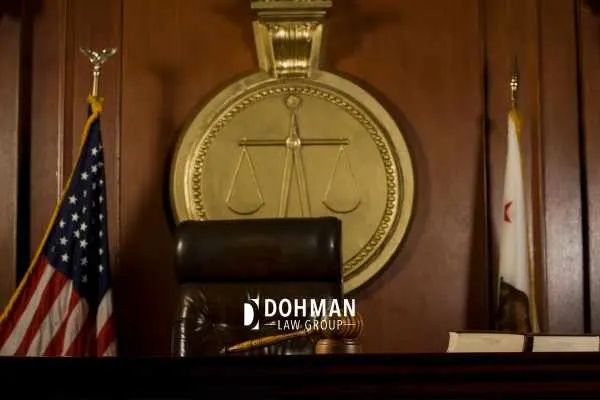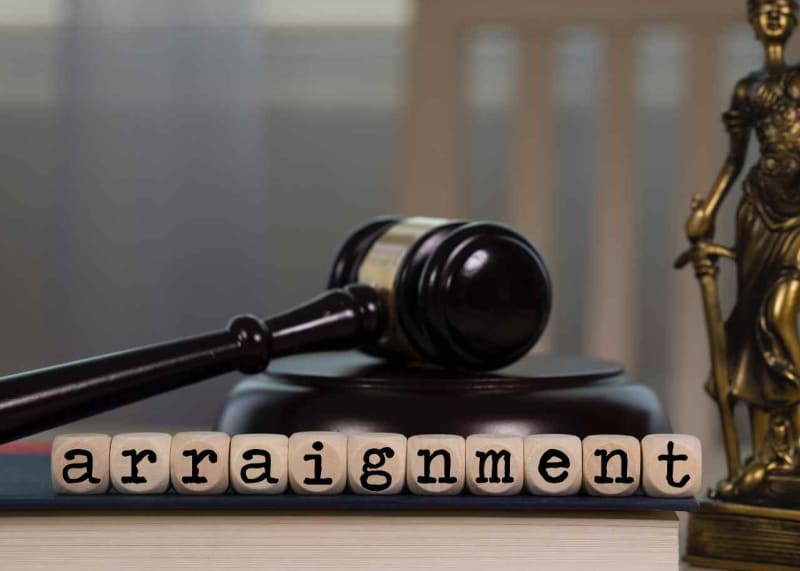A DUI arraignment is the first formal step in the court process after a DUI arrest. During this hearing, the charges against you will be read, and you will have the opportunity to enter a plea of guilty, not guilty, or no contest. The judge may also address bail, your right to an attorney, and any conditions of release. Understanding what to expect can help you prepare and avoid missteps that could impact your case.
Having a knowledgeable DUI defense attorney by your side can make a significant difference at your arraignment and throughout the legal process. A DUI defense lawyer can advise you on the best plea to enter, protect your rights, and start building a strong defense. If you’re facing a DUI charge, call Dohman Law at (847) 359-4005 to discuss your case and get the legal support you need.
What Is a DUI Arraignment?
A DUI arraignment is a court hearing where the judge formally reads the charges against you and informs you of your legal rights. This typically takes place a few days or weeks after your DUI arrest, depending on the court schedule. The hearing allows the court to ensure that you understand the criminal charge against you and begin the legal process.
At the arraignment, key legal figures include:
- The Judge – Oversees the arraignment, ensures you understand your charges, and sets future court dates for a DUI. The criminal court judge also determines bail conditions and scheduling for the case.
- The Prosecutor – Represents the state and presents the police reports and evidence against you.
- Your Defense Attorney – Protects your legal rights and advises you on the best course of action. If you do not have a private lawyer, the court may assign a court-appointed attorney to represent you.

While an arraignment is usually a brief proceeding, it is a critical step in the DUI defense process and sets the stage for what happens next in your case.
What to Expect During Your DUI Arraignment
During your arraignment hearing, the court will go through several key steps, including the following:
- Formal Reading of DUI Charges – The judge will read out the criminal charge filed against you, which may include driving under the influence, reckless driving, or other related criminal offenses. This step ensures that you fully understand what you are being accused of.
- Explanation of Legal Rights – You will be reminded of your constitutional rights, such as the right to legal counsel and the right to remain silent.
- Entering a Plea – You will be asked to enter a plea of Guilty, Not Guilty, or No Contest. Your decision at this stage will influence the course of your future proceedings.
- Setting Bail Conditions – If applicable, the judge may decide on bail or release conditions based on factors like your criminal record, flight risk, and the severity of the charge.
- Scheduling Future Court Dates – The judge will set dates for pre-trial motions, plea negotiations, and potential jury trial proceedings.
This pretrial hearing lays the foundation for how your case will proceed. The decisions made here can impact the plea deal options available later.
Should You Plead Guilty or Not Guilty at Your Arraignment?
One of the most important decisions you will make at your arraignment hearing is how to plead. Here’s what to consider:
- Pleading Guilty or No Contest – This means you accept the charges and move to sentencing. However, you may face serious penalties, such as fines, license suspension, and even jail time. A guilty plea at this stage could result in immediate sentencing without further discussion on possible defenses.
- Pleading Not Guilty – This is often the best option initially, as it allows you to review police reports, explore defense strategies, and negotiate a possible plea deal before trial.
- Impact of Your Plea – Your plea choice for a DUI affects the next steps in your case, including potential pre-trial motions and settlement discussions. If you plead not guilty, you will have more time to work with your criminal defense lawyers to build a strong defense.

It’s generally advised to consult with a DUI lawyer before making any decisions at your arraignment.
Will You Need a Lawyer for Your Arraignment?
Having a DUI attorney at your arraignment can significantly impact your case. Here’s why legal representation is crucial:
- Protecting Your Rights – A lawyer ensures you fully understand your charges and the possible consequences.
- Guidance on Plea Options – Legal counsel can help you decide whether to plead guilty, not guilty, or no contest.
- Negotiating for a Better Outcome – Your lawyer may begin working on pre-trial motions or negotiating for a plea agreement early in the process.
What Happens If You Don’t Have an Attorney?
If you appear without a lawyer, the judge may allow you to request a court-appointed attorney or give you time to hire an attorney before proceeding with your case.
What Happens After the Arraignment?
The arraignment hearing is just the beginning of the legal process. Afterward, your case will move into the pretrial phase, which includes:
- Pretrial Motions and Discovery – Your attorney may file pre-trial motions to suppress evidence, challenge the validity of the DUI stop, or request additional information.
- Plea Bargain Negotiations – In some cases, your lawyer may negotiate with the prosecutor to reduce charges or penalties through a plea deal.
- Trial Preparation – If no settlement is reached, your case will proceed to a jury trial, where evidence and legal arguments will be presented in court.
Each case is different, but having a strong legal defense increases the likelihood of achieving a favorable outcome.
Protect Your Rights From the Start—Get Legal Help Before Your Arraignment
A DUI arraignment is a critical first step in your case, setting the stage for what comes next. Whether you are deciding how to plead or preparing for future proceedings, having legal guidance can make all the difference.
At Dohman Law Group, our experienced criminal defense lawyers are ready to defend your rights and fight for the best possible outcome. Contact us today for a free consultation to discuss your case and legal options.


